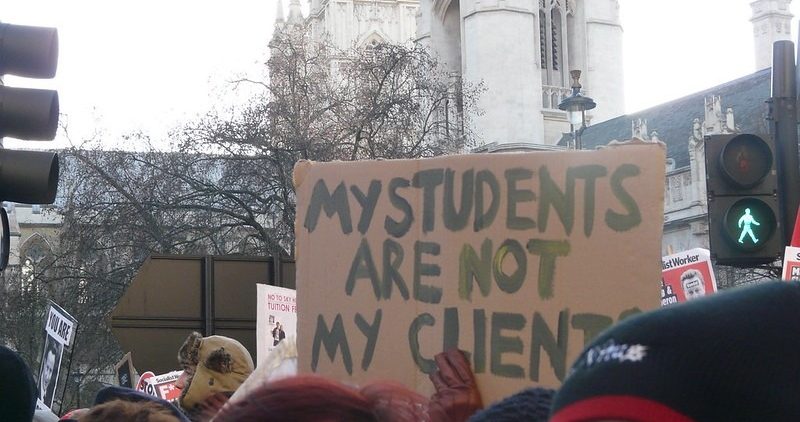Students oppose ‘frustrating’ tuition fee hikes
The announcement that university tuition fees will increase each year in line with inflation has had an overwhelmingly negative reception among Warwick students.
Amid the continuing funding crisis in higher education, Education Secretary Bridget Phillipson confirmed on 20 October that fees will increase for the next two years. She also promised legislation that would see automatic increases each year after that.
University tuition fees rose by 3.1% last year after they were frozen in 2017. At the current rate of inflation, fees could rise to over £10,000 per year by the end of this parliament. The inflation rate is likely to fluctuate before the planned increase, leaving incoming students in the dark.
Practically I don’t see this changing how I am expecting to repay my loan in the future
Third-year Warwick student
A social media poll conducted by The Boar revealed that almost three quarters of Warwick students are opposed to the new policy. A further 10% of respondents are unsure if they agree with the government’s decision to hike tuition fees.
One third-year student told The Boar that they find the news “frustrating”, but “practically I don’t see this changing how I am expecting to repay my loan in the future”.
They emphasised the greater practical impacts of the ‘Plan 5’ terms which came into effect in 2023. The Conservative government oversaw a decrease of the salary threshold for when repayments start to £25,000 a year and an increase to 40 years before any unpaid debts are written off.
One second-year student told The Boar that while they “understand [the increase in fees] is to help cope with inflation”, they struggle to reason with the commitment to the tuition fee system given “most students won’t even pay back their entire loan” before it’s written off.
I don’t think the increase in fees correlates to an increase in earning potential […] the point of investing in a degree is that we are supposed to have a higher earning potential after graduation
Second-year Warwick student
The Sunday Times revealed last year that just 13% of Warwick graduates have paid off their tuition fees in full, compared to one in four from Oxford and Cambridge.
Phillipson says universities charging the maximum tuition fees will have to provide strong graduate outcomes in order to do so. Universities must fall within OfS’ ‘quality threshold’ or risk a fee cap and limits to recruitment.
These thresholds include at least three quarters of students completing their course and 60% having a positive graduate outcome, typically further study or employment.
We’re pleased to see tuition fees linked to inflation moving forward, as a first step in putting the sector on a more financially stable footing
Dr Tim Bradshaw, Chief Executive of the Russell Group
The method of assessment for considering a university’s ‘teaching quality’ and ‘positive graduate outcomes’ remains uncertain.
One second-year student told The Boar: “I don’t think the increase in fees correlates to an increase in earning potential … the point of investing in a degree is that we are supposed to have a higher earning potential after graduation.” They went on to express concerns about the wage discrepancy between humanities and STEM graduates.
Dr Tim Bradshaw, Chief Executive of the Russell Group responded to the fee increase positively, claiming it is a necessary step to preserve the “world-class reputation” of British higher education amid ongoing “urgent financial challenges”.
“We’re pleased to see tuition fees linked to inflation moving forward, as a first step in putting the sector on a more financially stable footing”.
The University was approached for comment and had nothing to add to the Russell Group statement, which further states: “It’s right that the government is taking steps to protect and enhance quality for students”.
The University supports the Russell Group’s “efforts to remove barriers to higher education for people from all backgrounds, and to make sure young people have the information and support to make the choice that’s right for them”.
“We’re already implementing new commitments to support some of the most under-represented groups in higher education – and we know there’s more to be done.”
Opposition to the tuition fee structure is significant. UCU General Secretary, Jo Grady, accused Phillipson of ‘doubling-down’ on ‘the disastrous tuition fees funding model’
Universities UK also agreed with the RG statement, calling the proposal a “much-needed reset” to higher education in Britain after universities have suffered a “long-term erosion of [their] financial sustainability”.
Other individuals are less convinced. Professor Ian Dunn of Coventry University supports the increases, as he thinks they will “alleviate a little pressure”, but remains concerned that “it will not in itself solve the financial situation”.
Opposition to the tuition fee structure is significant. University and College Union General Secretary, Jo Grady, accused Phillipson of ‘doubling-down’ on “the disastrous tuition fees funding model” which she blames for the current higher education financial crisis.
Recent rises have, however, been made “more palatable” when maintenance support also increases. A survey undertaken at the start of this year saw negative opinions halve when students were asked to consider last year’s fee rise alongside an increased maintenance loan.
As part of the new proposal, maintenance loans will also rise each year in line with inflation.
It was also announced last month that maintenance grants for universities’ poorest students could be reintroduced after being scrapped in 2016. Details of this proposal are not expected for another month.

Comments